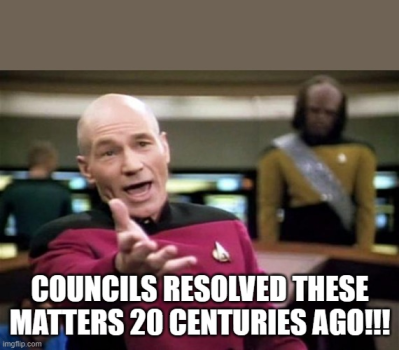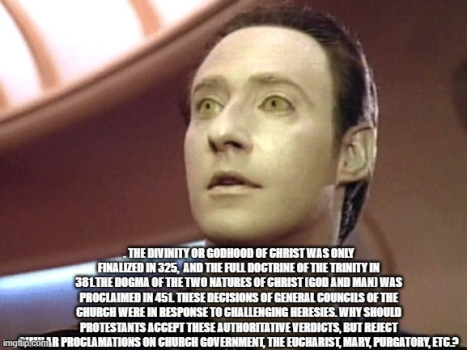face2face
Well-Known Member
- Jun 22, 2015
- 8,243
- 1,202
- 113
- Faith
- Christian
- Country
- Australia
“Grieve not the Holy Spirit”. Eph 4:30
Many translators will have God's Holy Spirit, or Holy Spirit of God...either is fine.
In this text there is personification and metonymy. The Spirit is spoken of as if it were a person, and then by metonymy it is put for God, whose the Spirit is. It is God that we grieve, and the Ephesians and other first century churches who had spirit-gifts grieved God, who had by those gifts manifested His power in their midst.
In the same way of Israel, it is said “they vexed His Holy Spirit” which is the same context as the Ephesians. The Spirit is not a person and the word is a metonymy for God. But the language has been understood in such a way that instead of the use of personification as a figure of speech, the literal meaning is given to the word and the Spirit is gradually personalized. When that happens and the Spirit is thought of as a conscious self-acting power instead of a divine agency, the next step which has to be taken is to seek to define the relationships of Father, Son and Holy Spirit. Then the history of the declension of the second and third centuries is repeated, and the end is the doctrine of “the Holy Trinity”.
F2F
Many translators will have God's Holy Spirit, or Holy Spirit of God...either is fine.
In this text there is personification and metonymy. The Spirit is spoken of as if it were a person, and then by metonymy it is put for God, whose the Spirit is. It is God that we grieve, and the Ephesians and other first century churches who had spirit-gifts grieved God, who had by those gifts manifested His power in their midst.
In the same way of Israel, it is said “they vexed His Holy Spirit” which is the same context as the Ephesians. The Spirit is not a person and the word is a metonymy for God. But the language has been understood in such a way that instead of the use of personification as a figure of speech, the literal meaning is given to the word and the Spirit is gradually personalized. When that happens and the Spirit is thought of as a conscious self-acting power instead of a divine agency, the next step which has to be taken is to seek to define the relationships of Father, Son and Holy Spirit. Then the history of the declension of the second and third centuries is repeated, and the end is the doctrine of “the Holy Trinity”.
F2F



